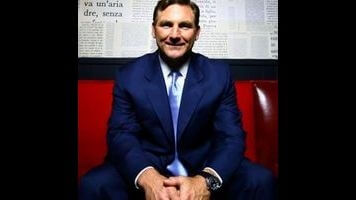30 For 30: "Kings Ransom"

My good friend Luke is from Edmonton, Alberta, one of those cities that pops up out of nowhere when you’re driving across North America’s great northern expanses, tall buildings that would be dwarfed in most other metropolises standing out against the blue skies from miles off. Though Edmonton is surprisingly large, it’s one of those cities you just never hear about because it’s not on one of our coasts (or, in Canadian parlance, it’s not Toronto). This makes Edmonton – to our oft-myopic sports media – a “small market,” a prophecy that almost becomes self-fulfilling along the way. Luke is a pretty reasonable guy, who tends to be interested in things like good film and music, but like everyone else in Edmonton, he gets fairly religious about the Edmonton Oilers, the northernmost franchise in professional sports. When you’re in a city like Edmonton, the local team becomes something beyond even yourself or your city, an entity that stands in for a lot of thwarted hopes and dreams and a symbol of something beyond your immediate surroundings. But the relationship between Edmonton and the Oilers goes beyond almost any other city’s relationship to its team; the only comparison anyone can come up with in “Kings Ransom,” the story of Wayne Gretzky heading from the Oilers to the Los Angeles Kings and the first episode of 30 for 30, is the relationship of Green Bay to the Packers. (I mean, good God, I grew up in the Upper Midwest in the run-up to the Twins’ 1991 World Series title, and that can’t compare to the hysteria portrayed here.)
“Ransom,” directed by Peter Berg, is one of the better breakup films you’ll see, even if it feels just a bit too slight at just under an hour (a lament I suspect we’ll make several times while covering 30 for 30). It also marks a good start for ESPN’s new, surprisingly non-self-congratulatory documentary series that takes time to look at some of the less well-known sports news stories of the last 30 years (which is how long the network has been in existence). As a lifelong hockey fan and someone who was living in Los Angeles when Wayne Gretzky was traded to the Kings from the Oilers, Berg is almost uniquely well-suited to tell the story of how Gretzky leaving Edmonton turned that city into a case in depression while almost singlehandedly boosting interest of hockey in the southern and western United States. It’s one of the most important stories in sport in the last 30 years, and yet few United States citizens have ever thought about it all that much. The closest analog to the event in U.S. sports is likely when the Brooklyn Dodgers decamped for Los Angeles, and even that doesn’t quite capture just how much Gretzky leaving rocked not only a city but the nation that city was in.
“Kings Ransom” manages to provide an impressive primer to the event, something that most here in the U.S. will find handy (I knew some of the ins and outs but didn’t know even half of everything contained in the film). Berg’s frenetic editing occasionally tries a little too hard to juice the action in the film (cuts from an aged Gretzky standing alone in an abandoned arena to his heyday with the Oilers – when the team won four Stanley Cups in five years – seem particularly egregious in this regard). But he manages to find a lot of footage that won’t be familiar to most who know the story already, including footage of Gretzky and his new bride, actress Janet Jones, driving away from the national holiday that was his wedding and remarking at how great the event was. There’s also footage of celebrities hanging out behind the scenes at the Forum with Gretzky after he made his debut with the Kings that’s fun to see, a better indicator of just how much the Kings became the talk of LA after Gretzky’s debut than any talk of increased ticket sales could manage.
 Keep scrolling for more great stories.
Keep scrolling for more great stories.
